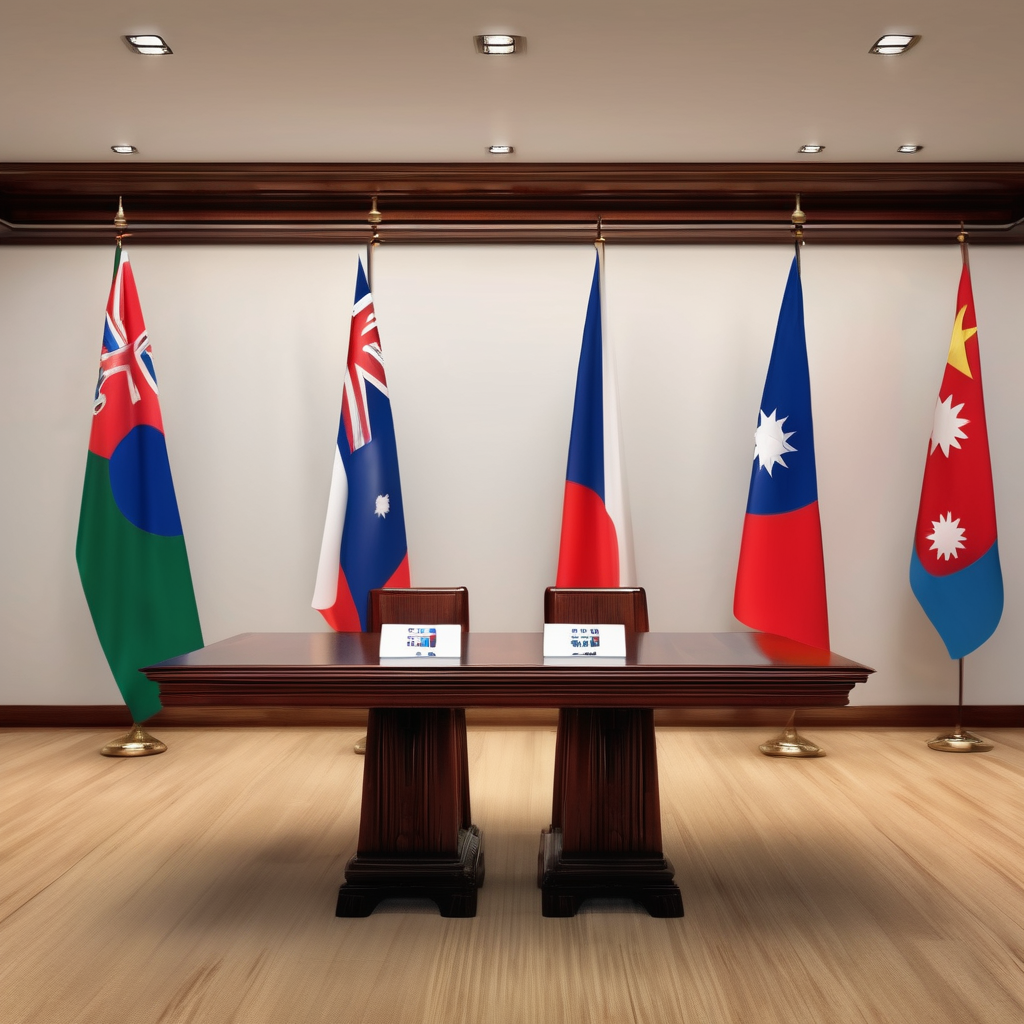China has expressed its strong discontent towards Fiji following a diplomatic visit by Filipo Tarakinikini, Fiji’s Permanent Representative to the United Nations, to Taiwan. The Chinese government views this visit as a breach of the one-China principle, which stipulates that there is only one sovereign state under the name China, with Taiwan being considered part of it.
Tarakinikini’s recent trip to Taiwan included meetings with Vice President Hsiao Bi-khim and other ambassadors from countries aligned with Taiwan such as Paraguay and the Marshall Islands. During this trip, discussions highlighted the support these nations offer Taiwan, further solidifying its diplomatic presence in international affairs.
In a press conference, Chinese Foreign Ministry spokesperson Mao Ning condemned the visit, stating it “severely violated Fiji’s political commitment” to Beijing. Mao expressed that China firmly opposes any official exchanges between Taiwan and countries that maintain diplomatic relations with China, labeling the engagement as “despicable actions” that would not yield any success for Taiwan.
This incident comes at a significant time as China and Fiji were marking the 50th anniversary of their diplomatic relations, with both countries recognizing the importance of their partnership. Historically, Fiji has been a key partner to China in the Pacific, being the first island nation in the region to establish these ties. Mao noted that Fiji’s commitment to the one-China principle has been a fundamental aspect of their bilateral relationship.
To celebrate their diplomatic milestone, China’s President Xi Jinping and Premier Li Qiang exchanged congratulatory messages with Fiji’s President Ratu Naiqama Lalabalavu and Prime Minister Sitiveni Rabuka. Mao reiterated China’s dedication to strengthening cooperation with Fiji in various sectors, aiming to elevate their comprehensive strategic partnership to new heights.
As Fiji navigates its diplomatic relations amid complex geopolitical frameworks, including its ties with both China and Taiwan, this situation may encourage future dialogue that fosters cooperation and stability within the Pacific region. The diplomatic interactions signify the intricate balancing act that Fiji must perform, potentially leading to more fruitful engagements that benefit regional allies and promote mutual growth in a time of increasing international scrutiny.
